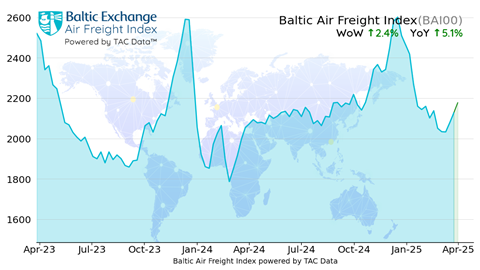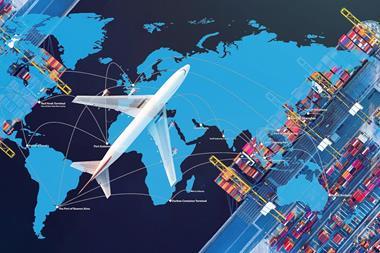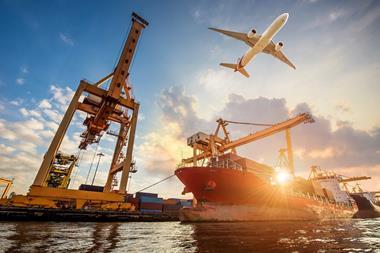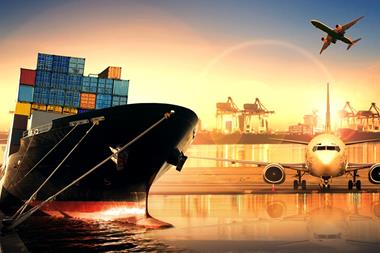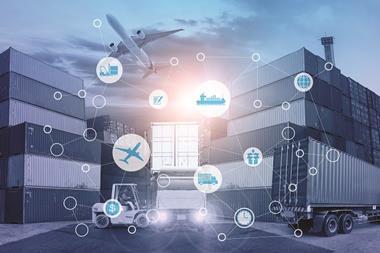
Airfreight rates continued to rise last week as firms looked to move goods before the US announces what are expected to be its most far-reaching range of tariffs yet.
Baltic Air Freight Index figures calculated by data house TAC show that overall prices increased 2.4% in the week to 31 March and are up by 5.1% compared with a year ago.
Overall rates have been on the rise since early March - it is the third week in a row that the overall index has risen.
Rates on services from Hong Kong increased 2.6% week on week and are up 1.4% year on year, while from Shanghai prices are up 0.6% week on week and 3.9% on a year ago.
Rates out of Frankfurt increased 8.3% week on week and are up 28.2% year on year, while from London there was a 15.5% increase on a week earlier and are up 2.6% against last year.
Meanwhile, US rates came under pressure with prices out of Chicago falling 12.5% compared with a week earlier.
TAC said the price rises come as sources report “demand spurred by shippers racing to move goods ahead of April 2 when various new and tighter tariffs are expected to take effect”.
US president Donald Trump is expected to announce a range of reciprocal tariffs either later today (1 April) or on Wednesday in what he has dubbed "liberation day".
The move comes as the president has said the US is being ripped off by "every country in the world".
Tariffs are expected to be targetted at country level, although Trump has more recently indicated they could also be targeted at specific sectors.
Last week, the US announced 25% tariffs on all automobiles and automobile parts coming into the country.
Chris Clowes from consultancy Scala described the new automotive tariffs as a major escalation in trade policy, with ripple effects felt far beyond the US.
"While the aim may be to boost domestic manufacturing in the US, the reality is that automotive supply chains today are highly complex, tightly interwoven, and global," said Clowes.
"Components often cross multiple borders before a vehicle reaches final assembly, so sudden tariffs like this may drive up costs - not just for manufacturers and suppliers, but for consumers in turn, too.
“This kind of disruption puts enormous pressure on global supply chains. Businesses will be forced to reassess sourcing strategies, redirect shipments, and renegotiate contracts - all at short notice."
